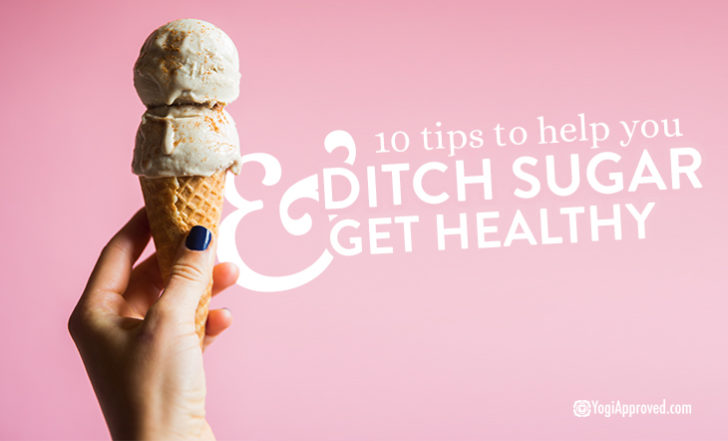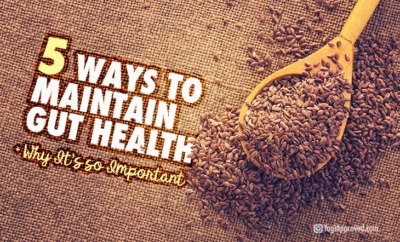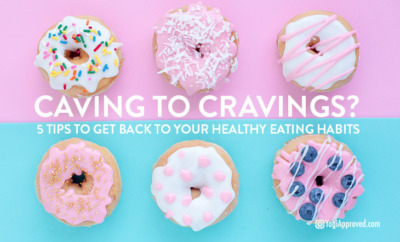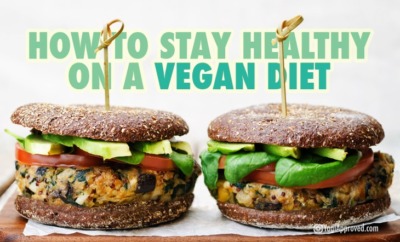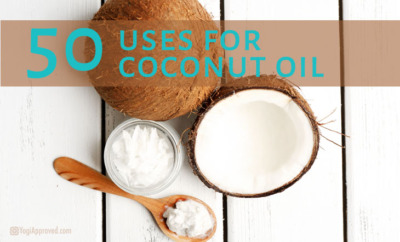7 Healthy Sugar Alternatives: Here’s What You Need to Know About Each
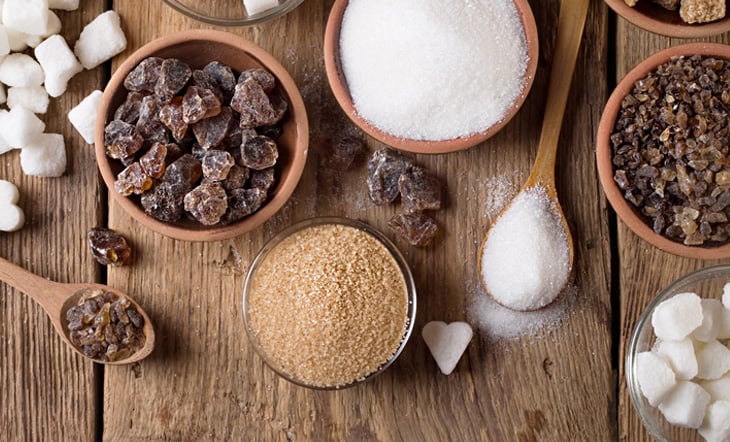
SugarAlternatives feature
What are my healthy sugar alternatives? What are the types of sugar I should and shouldn’t consume? What’s the deal with agave nectar vs. honey? Also, should all sugar to be sworn off?
There are various types of sugars and unrefined sweeteners on the market, so how do you know which to choose? A common debate is agave nectar vs. honey – but what about the increasingly popular coconut sugar?
These are common questions many people ask, but the answers aren’t always clear or straightforward . . .
This article breaks down the different types of sugar out there and outline healthy sugar alternatives so you can educate yourself on the best option for you.
The Facts About Sugar Intake and Why It’s Important to Seek Sugar Alternatives:
A spoonful of sugar here and there isn’t the end of the world, and naturally occurring sugar in fruit is not to fear, since you’re also getting tons of fiber and vitamins in that apple or banana.
The issue is when we begin adding refined sugar to everything, which is devoid of nutritional perks, that issue arise.
The average American consumes more than triple the recommended daily amount of sugar – an average of 19.5 teaspoons per day
The recommended daily amount (RDA) of sugar for women is 25 grams. To put this into perspective, 25 grams of sugar is less than one flavored latte and most yogurts.
The average American consumes more than triple the RDA of sugar – an average of 19.5 teaspoons per day. Yikes.
Too much sugar intake, along with sugar addiction, is a contributing factor to our growing obesity epidemic, and can lead to insulin resistance, coronary heart disease, diabetes, and other not-so-sweet, grim realities.
Interested in doing a sugar cleanse? Follow These 10 Tips to Complete a Sugar Detox
It’s also important to note that the fake alternatives in the colored packets are not any better for you than refined sugar – in fact they’re likely worse.
Common Sugar Alternatives and What You Need to Know About Each:
Agave Nectar
One of the darlings of the health food scene, it seems like every healthy food blogger has agave nectar in their pantry to use in place of refined sugar.
The nectar comes from the Mexican agave plant (yes, the same one that is fermented to make tequila) and has a far lower glycemic index than refined sugar.
This equates to less of a spike (and crash) in blood sugar levels, making agave nectar a far healthier option for diabetics (and everyone).
Make sure you choose a minimally processed version that only contains actual agave – nothing else. Double check for that USDA-certified organic label to steer clear of pesticides, too.
Honey
Raw honey is truly one of Mother Earth’s miracle foods, and packs tons of health benefits like enzymes, antioxidants, iron, and zinc. Raw, unpasteurized honey contains the greatest health benefits, and has less of a glycemic index than a banana!
As with other sweeteners, there’s a huge variety, so don’t assume all amber-colored liquids labeled “honey” are created equal. Grocery store versions may be watered down or full of added corn syrup.
Sadly, the world’s honeybee population is dwindling and in critical condition, so it’s never been more important to buy local honey from beekeepers in your town at farmer’s markets (who are at the forefront of keeping the bee population alive!).
Maple Syrup
Not just for a stack of pancakes (yum!), maple syrup can be used in place of regular sugar in cooking or for sweetening anything from your coffee to a savory dish.
Rich, dark grade B maple syrup is best, as it contains extra high doses of free-radical-fighting antioxidants, plus minerals like zinc and potassium.
Stevia
Stevia is a plant-based sweetener and a favorite among those watching their sugar and calorie intake, since it’s zero-calorie and super concentrated (meaning less is way more). Stevia is available in packets, liquid drops, and baking blends, so can be used as a sugar substitute for recipes and sweetening.
However, it’s important to be aware that certain brands of stevia contain ingredients like natural flavors or lactose that aren’t ideal for everyone.
Stevia’s popularity is new and the research is sparse. Some studies suggest consuming stevia can disrupt certain beneficial gut bacteria, but the jury’s still out.
As with any sweetener, consume stevia in moderation, and choose one that’s 100% pure stevia.
Dates
Dates are easily the least processed option out there for a delicious sugar alternative. Don’t underestimate the humble date, which can add plenty of sweetness to cookies, muffins, smoothies, or enjoyed plain as nature’s candy.
Dates have roughly half the glycemic index as white sugar. Puree a few dates in a food processor and experiment with adding them to recipes as a sugar substitute.
Coconut Sugar
Coconut sugar tastes and looks similar to refined sugar (just coarser and a light brown color), but it boasts a much lower glycemic index. It comes from extracting sap from blooms on a coconut.
Coconut sugar also retains its naturally-occurring minerals and antioxidants. However, it does contain roughly the same amount of fructose as white sugar, gram for gram, so remember to go easy on the consumption.
Monk Fruit Extract
Extracted from the monk fruit, monk fruit sweetener gets its sweetness from the naturally occurring antioxidants in contains. It is a zero calorie sweetener but can be 100-250 times more sweet than regular sugar, so a little goes a very long way.
While this sugar alternative is also relatively new to research and more research is needed to confirm its potential additional health benefits, monk fruit sweetener is natural and calorie-free.
The Takeaway on Healthy Sugar Alternatives
Life should be sweet, and with these healthier alternatives to sugar, it can be! As with anything in life, moderation is key.
When you need a special sweet treat now and again, don’t deprive yourself! Instead, know your options and opt for a healthier alternative.
Inspired and hungry? These avocado brownies are a delicious, monk fruit-sweetened dessert to whip up!
All included information is not intended to treat or diagnose. The views expressed are those of the author and should be attributed solely to the author. For medical questions, please consult your healthcare provider.


This Month's Letter
From the Editor
Monthly motivation and food for
thought from our founder.


